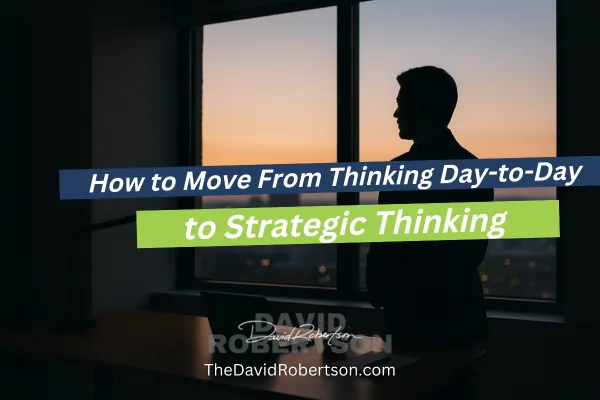How to Move From Day-to-Day Thinking to Strategic Thinking
Running hard isn’t the same as leading well. This article helps business owners and managers move from constant urgency to strategic leadership by learning how to think ahead instead of reacting all day.




